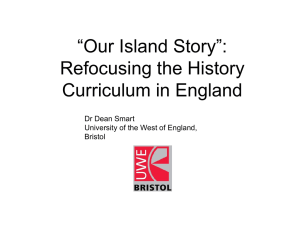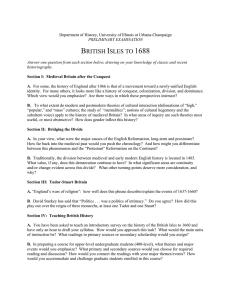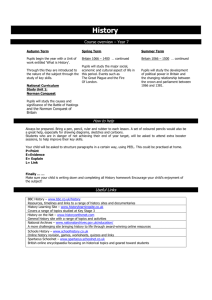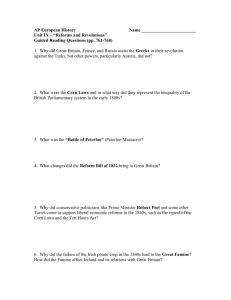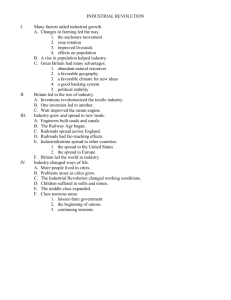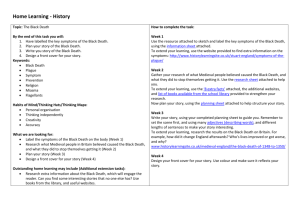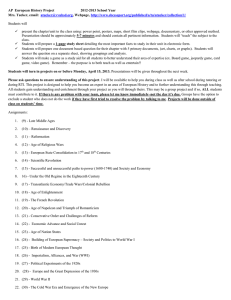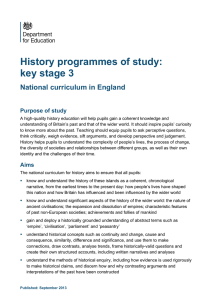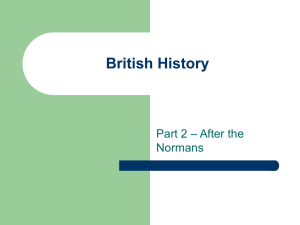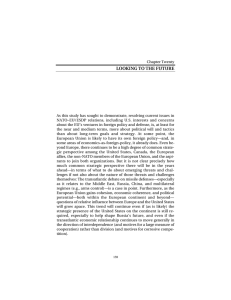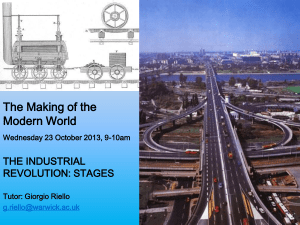History KS3 Curriculum Outline 2014-15
advertisement
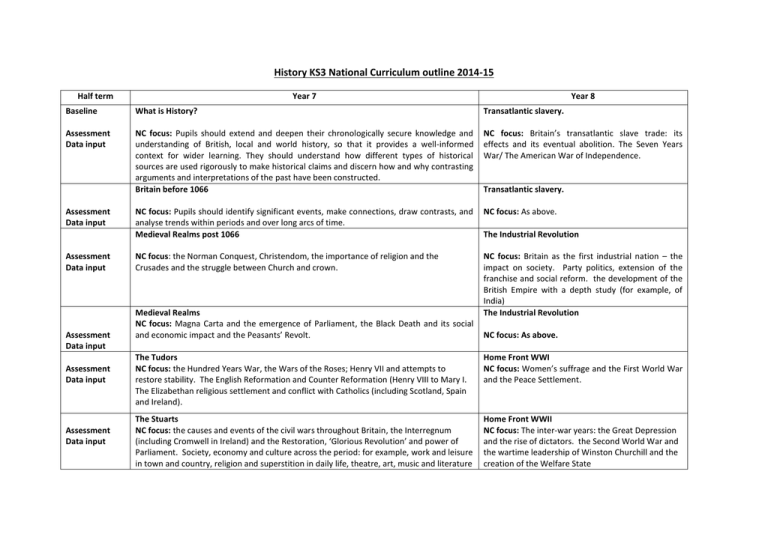
History KS3 National Curriculum outline 2014-15 Half term Year 7 Year 8 Baseline What is History? Transatlantic slavery. Assessment Data input NC focus: Pupils should extend and deepen their chronologically secure knowledge and understanding of British, local and world history, so that it provides a well-informed context for wider learning. They should understand how different types of historical sources are used rigorously to make historical claims and discern how and why contrasting arguments and interpretations of the past have been constructed. Britain before 1066 NC focus: Britain’s transatlantic slave trade: its effects and its eventual abolition. The Seven Years War/ The American War of Independence. NC focus: Pupils should identify significant events, make connections, draw contrasts, and analyse trends within periods and over long arcs of time. Medieval Realms post 1066 NC focus: As above. NC focus: the Norman Conquest, Christendom, the importance of religion and the Crusades and the struggle between Church and crown. NC focus: Britain as the first industrial nation – the impact on society. Party politics, extension of the franchise and social reform. the development of the British Empire with a depth study (for example, of India) The Industrial Revolution Assessment Data input Assessment Data input Assessment Data input Assessment Data input Assessment Data input Medieval Realms NC focus: Magna Carta and the emergence of Parliament, the Black Death and its social and economic impact and the Peasants’ Revolt. Transatlantic slavery. The Industrial Revolution NC focus: As above. The Tudors NC focus: the Hundred Years War, the Wars of the Roses; Henry VII and attempts to restore stability. The English Reformation and Counter Reformation (Henry VIII to Mary I. The Elizabethan religious settlement and conflict with Catholics (including Scotland, Spain and Ireland). Home Front WWI NC focus: Women’s suffrage and the First World War and the Peace Settlement. The Stuarts NC focus: the causes and events of the civil wars throughout Britain, the Interregnum (including Cromwell in Ireland) and the Restoration, ‘Glorious Revolution’ and power of Parliament. Society, economy and culture across the period: for example, work and leisure in town and country, religion and superstition in daily life, theatre, art, music and literature Home Front WWII NC focus: The inter-war years: the Great Depression and the rise of dictators. the Second World War and the wartime leadership of Winston Churchill and the creation of the Welfare State
